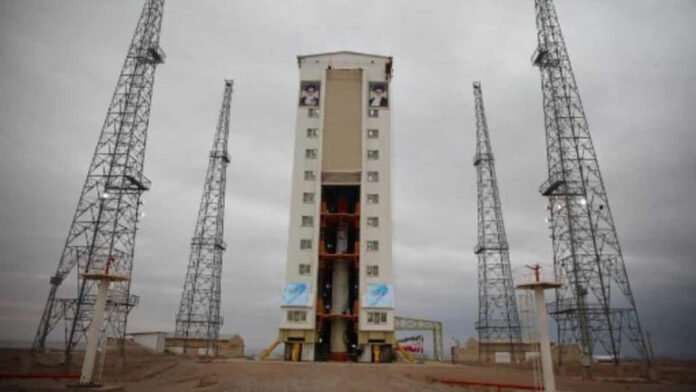Iran’s recent successful launch of satellites into orbit has marked a significant milestone in the country’s space exploration endeavors. However, this achievement has not come without controversy, as Western nations, particularly the United States, have criticized Iran’s space program, alleging that it could be used to develop long-range ballistic missiles. This juxtaposition of scientific advancement and geopolitical tension highlights the complexities surrounding Iran’s space ambitions and the challenges it faces in navigating international scrutiny.
On January 16, 2024, Iran’s Islamic Revolutionary Guard Corps (IRGC) Aerospace Force announced the successful launch of the “Zafar” and “Noor 2” satellites into orbit aboard domestically developed rockets. The launches were hailed as technological triumphs and symbols of Iran’s growing capabilities in space exploration. The Zafar satellite, designed for remote sensing and monitoring purposes, and the Noor 2 satellite, intended for telecommunications, represent significant advancements for Iran’s space program.
While Iran celebrated its achievements in space exploration, Western nations expressed concerns over the implications of the country’s satellite launches. The United States, in particular, condemned Iran’s space program, alleging that it could serve as a cover for the development of intercontinental ballistic missile (ICBM) technology. The U.S. has long been critical of Iran’s ballistic missile program, viewing it as a threat to regional stability and international security.
The tension surrounding Iran’s space program stems from the dual-use nature of space technology, which can have both civilian and military applications. While Iran insists that its space program is purely peaceful and aimed at advancing scientific research and telecommunications infrastructure, Western nations remain skeptical, citing Iran’s history of missile development and proliferation.
The controversy surrounding Iran’s space program underscores the broader geopolitical dynamics at play in the Middle East and the Persian Gulf region. Iran’s space ambitions have become entangled with regional rivalries, international sanctions, and nuclear proliferation concerns, further complicating efforts to build trust and cooperation in the realm of space exploration.
Despite facing criticism from Western nations, Iran has remained steadfast in its commitment to advancing its space capabilities. The country views space exploration as a source of national pride and technological advancement, with ambitions to expand its presence in orbit and contribute to global scientific research efforts. Iran’s successful satellite launches represent tangible evidence of its progress in this regard, underscoring the country’s determination to assert itself as a regional leader in space exploration.
However, Iran’s space program faces significant challenges, both domestically and internationally. The country’s economy has been battered by years of international sanctions, limiting its access to advanced technology and scientific expertise. Moreover, Iran’s geopolitical isolation and strained relations with Western nations have hindered its ability to engage in international collaboration and access to space technology.
In light of these challenges, Iran’s space program must navigate a delicate balance between its ambitions for scientific advancement and the concerns of the international community. The country’s leaders must demonstrate transparency and adherence to international norms and regulations governing space activities while also asserting Iran’s sovereign right to pursue peaceful space exploration.
The success of Iran’s satellite launches serves as a reminder of the transformative power of space technology and its potential to bridge divides and foster cooperation among nations. While geopolitical tensions may cast a shadow over Iran’s space ambitions, the country’s achievements in space exploration should be celebrated as a testament to human ingenuity and perseverance.
As Iran continues to make strides in space exploration, it must work to address the concerns of the international community and build trust through dialogue, transparency, and responsible behavior. By doing so, Iran can realize its vision of becoming a respected player in the global space community while contributing to scientific progress and international cooperation in orbit.

